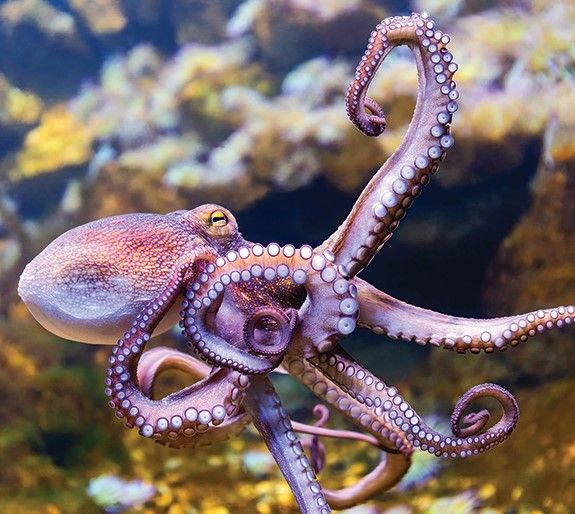PROVIDED BY MGS
Human activity affects the planet, including the oceans and the marine life that call these vast bodies of water home. According to National Geographic, more than 80 percent of marine pollution comes from land-based activities. Climate change is affecting ocean chemistryand many marine processes.
Marine life cannot deal with higher water temperatures and infiltration of certain chemicals.
Although people once assumed that vast oceans were so large that they would be immune to the effects of humans, scientists know that humanity has had a profound effect on the sea. Here’s a look at six problems affecting the oceans.
1. Plastic pollution: Single use plastics are turning up in greater numbers in the world’s oceans. Greenpeace says 90 percent of global plastic isn’t recycled. Plastic can be consumed by marine life, and certain marine animals are getting tangled in plastic, resulting in injury and death.
2. Rising sea levels: Scientists say that global warming is causing sea levels to rise, which is threatening coastal populations.
3. Dead zones: Certain types of fishing, like trawling, and agricultural pollution on land, can cause oversaturation of nutrients in the water. This, in turn, depletes oxygen levels that result in dead zones.
4. Acidification: According to The Deep Blue Organization, acidification occurs when there is a drop in the ocean’s pH levels, which happens when carbon is absorbed into the water and the chemical composition of seawater changes and becomes more acidic. Acidification can reduce carbonate in seawater and animals with shells or exoskeletons will not get enough of a key element they need to survive.
5. Deep-sea mining: Mining in the oceans involves dredging the bottom of the ocean and extracting minerals like manganese, nickel, cobalt, zinc, copper, and gold. Removing this level of the seabed can destroy habitats for coral, sponges and other marine life, says EcoWatch.
6. Commercial whaling: Commercial whaling practices were once so common that many whale species were driven to near extinction. A moratorium on commercial whaling initiated by Greenpeace and other allies in 1986 has helped restore some whale populations, but certain nations do not honor the agreement, and whale populations continue to suffer due to commercial whaling enterprises.
The world’s oceans are threatened by various human activities. A concerted effort to curtail those activities can benefit the oceans and the many species that reside in the sea.














